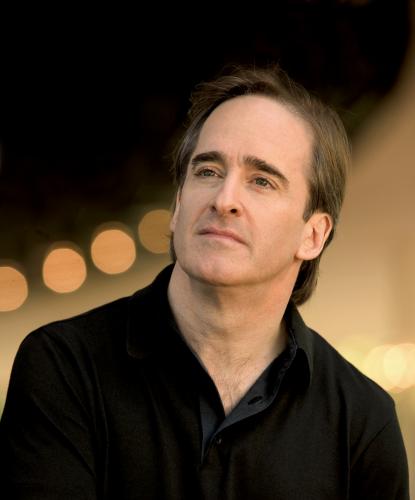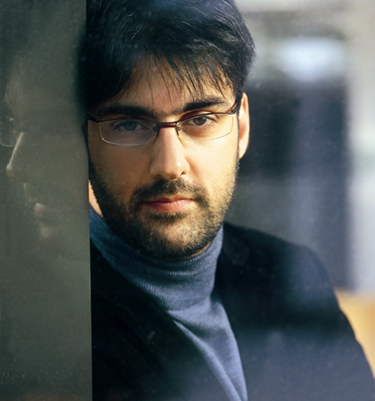Sizzling Shostakovich from Conlon and CSO

Back home for their first concert after a triumphant Carnegie Hall stand last weekend, the Chicago Symphony Orchestra was in top form Thursday night for the evening’s main event, even with several principals taking the week off.
James Conlon is on the podium this week, and it seemed almost foreign to see the Ravinia music director in downtown black concert garb rather then the usual summer whites.
Classical programming at Ravinia has devolved into such relentlessly populist fare that it’s easy to forget that the American conductor largely made his name with the resuscitation of unusual repertoire and advocacy of neglected Late Romantic composers.
One literally unsung work that Conlon feels passionate about is Shostakovich’s opera, Lady Macbeth of Mtensk, and this week he is performing the downtown premiere of his orchestral suite of the work, heard Thursday night.
As the conductor pointed out in his witty introduction, Shostakovich’s opera is a bracing reminder of how the Russian composer’s music may have developed if it was not interrupted by Soviet internal politics. This was the work that famously earned Shostakovich condemnation in Pravda from Stalin and his cultural commissars. The composer pulled back sharply from the uninhibited anarchic musical style, eventually earning praise and restoration to Stalin’s good graces with the Fifth Symphony, his “artist’s reply to just criticism” for Lady Macbeth.
Conlon’s generous suite largely follows the opera’s narrative. The amoral heroine, Katerina is a kind of Lulu of the Steppes, a rich, depressed wife who enters into a torrid affair with the equally vacuous Sergei. The duo kill her father-in-law Boris with rat poison and strangle her husband Zinovy before they are caught, exiled and come to an equally tragic end.
This light-hearted frolic is set to a score by Shostakovich that is alternately bombastic and lyrical, with a kind of Coen Brothers-like bemused cynicism about the murderous acts. As Conlon noted, there is some magnificent music in this opera, and his arrangement works very well, a fluent tightly constructed 42 minutes with the vocal lines given to various individual instruments.
The explosive fury was put across with awesome power and gleam by the CSO Thursday as well as Shostakovich’s familiar anarchic energy as in the galumphing Keystones-Kops-like martial music for the police chase. There is also a bitingly bitter edge— the graphic, cacophonous, music for Katerina and Sergei’s sex scene makes the romantic passage of Sinfonia domestica seem like a Bach motet.
Yet the brutality is compensated by a lyric beauty in this score, as in the Adagio that opens Conlon’s arrangement, and an Interlude that offers one of the composer’s most lovely inspirations. The CSO delivered the sonic combustion of the rambunctious moments as well as the requisite delicacy. Conlon’s Lady Macbeth suite is a fine addition to the concert repertoire and desrves to be widely performed, as well as achieving its intent of making one want to experience a staged production of the opera.

The evening’s centerpiece was the Sibelius Violin Concerto with Leonidas Kavakos as solo protagonist.
Winner of both the Sibelius and Paganini competitions, The Greek violinist clearly has a stellar technique. Kavakos seemed to want to offer a more intimate take than usual on the Finnish composer’s concerto, as with the hushed, inwardness of his playing in the opening movement.
Yet while avoiding the Romantic blockbuster approach, Kavakos didn’t seem to have a valid alternative besides playing more softly and much more slowly than usual. The soloist brought a confiding intimacy to the score, but his indulgent lingering impeded forward momentum and slighted the roiling, volatile drama in the music.
With Conlon’s aggressive tuttis set against Kavakos’s mellow approach, the two men almost felt like they were performing different works Thursday. The “polonaise for polar bears” finale was more straightforward and successful in its bravura, but this was a decidedly idiosyncratic and disappointing performance unaided by a garrulous rough-edged accompaniment.
The opener, Sidereus by Osvaldo Golijov fared better. Commissioned by 35 orchestras to honor Henry Fogel, former executive director of the CSO, Sidereus is characteristic in its breezy style, moving from Mahlerian angst to bustling energy. As often with this composer, the magpie influences (Glass, Torke, a rising three-note Bruckner fragment and a theme borrowed from Michael Ward-Bergeman) are more manifest than any individual voice but it makes a slick, smartly scored 8-minute curtain-raiser, performed with verve by the orchestra under Conlon’s direction.
The program will be repeated 8 p.m. Saturday. cso.org; 312-294-3000.
Posted in Performances


Posted Apr 24, 2011 at 12:25 am by Alan Eden
Totally disagree about the Sibelius, ive seen a trend in these reviews that everything has to be fast paced and bombastic. Receny performances like the St Petersburg Orchestra and Stephen Hough’s awful Tchaikovsjy piano concerto illustrate perfectly the perils of trying to be flashy.
I thoroughly enjoyed the Sibelius and it was refreshing to see a soloist who was more intersted in the music than how good they looked